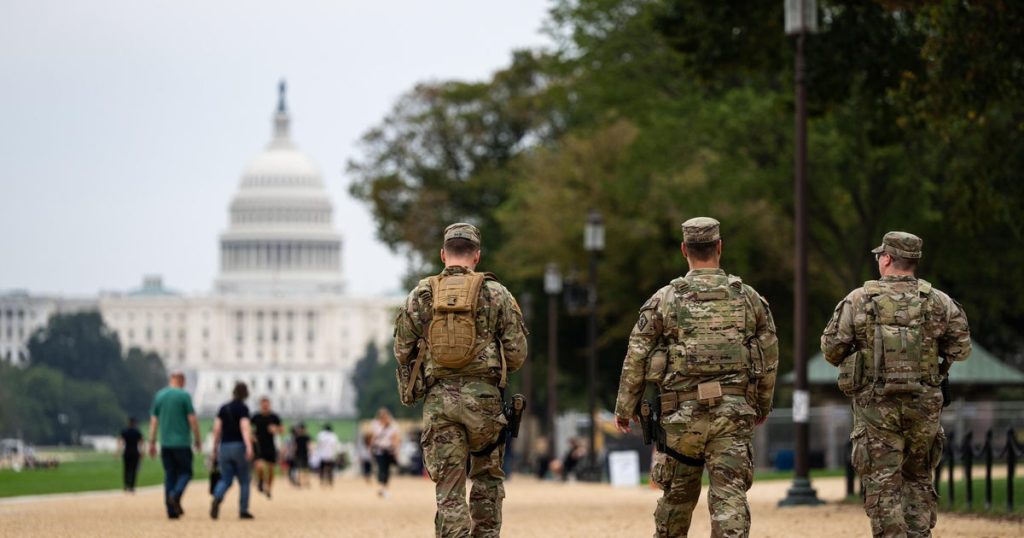Unless Congress comes to a funding deal ahead of October 1, the government will shut down, forcing active-duty service members to continue to serve without pay until a deal is made.
During a government shutdown, all active-duty personnel, as well as National Guard who are currently deployed, must carry out their assigned duties with their pay delayed until the shutdown is over. Civilian personnel whose work the Defense Department considers essential, or “excepted,” will also continue to work, while other civilians are furloughed for the duration of the shutdown.
“After the government shutdown, all government employees will automatically receive back pay, based on the terms of the Government Employee Fair Treatment Act of 2019,” said Seamus Daniels, a fellow for Defense Budget Analysis at the Center for Strategic and International Studies.
Active-duty service members won’t get paid on time unless Congress passes a separate piece of legislation, as it did in 2013 with the “Pay Our Military Act,” which ensured military pay and allowances continued during a government shutdown.
Republican Rep. Jen Kiggans of Virginia introduced a bill earlier this month with bipartisan support, the “Pay Our Troops Act of 2026,” which would keep members of the military and Coast Guard paid during a shutdown, but it’s unlikely to pass in time because the House is out of session until Oct 7.
During the last shutdown in 2019, the Navy Federal Credit Union and USAA offered special loans to members of the military, and they plan to do so again if there’s a shutdown in October. The Navy Federal Credit Union said in a press release it would “offer 0% APR loans to eligible members whose pay may be affected, continuing a tradition of assistance seen during previous shutdowns in 2011, 2013 and 2018-2019, when nearly 20,000 members received support.” USAA plans to offer eligible members who have accounts with the bank a “no-interest loan equal to the amount of one net paycheck.”
The Defense Department published contingency guidance on Friday, outlining its priority missions and stating that unused funds passed in the reconciliation bill over the summer could be considered to support them. The list includes, in order: operations to secure the U.S. Southern Border, Middle East operations, the U.S. missile defense project Golden Dome for America, depot maintenance, shipbuilding and critical munitions.
The guidance estimates about 406,000 of the department’s 741,000 civilian employees will be required to work in the event of a shutdown because their mission is critical and not easily carried out by any U.S. service member.
While a memo from the White House Office of Management and Budget said some civilians could be laid off during the shutdown, the guidance released by the Defense Department outlines furloughs but no cuts to the civilian workforce.
During the shutdown, medical care and dental care would be excepted, according to the contingency guidance, but elective surgeries and other elective procedures would be delayed unless they’re necessary for military readiness. Private health care using the Defense Department’s TRICARE medical insurance would continue uninterrupted.


